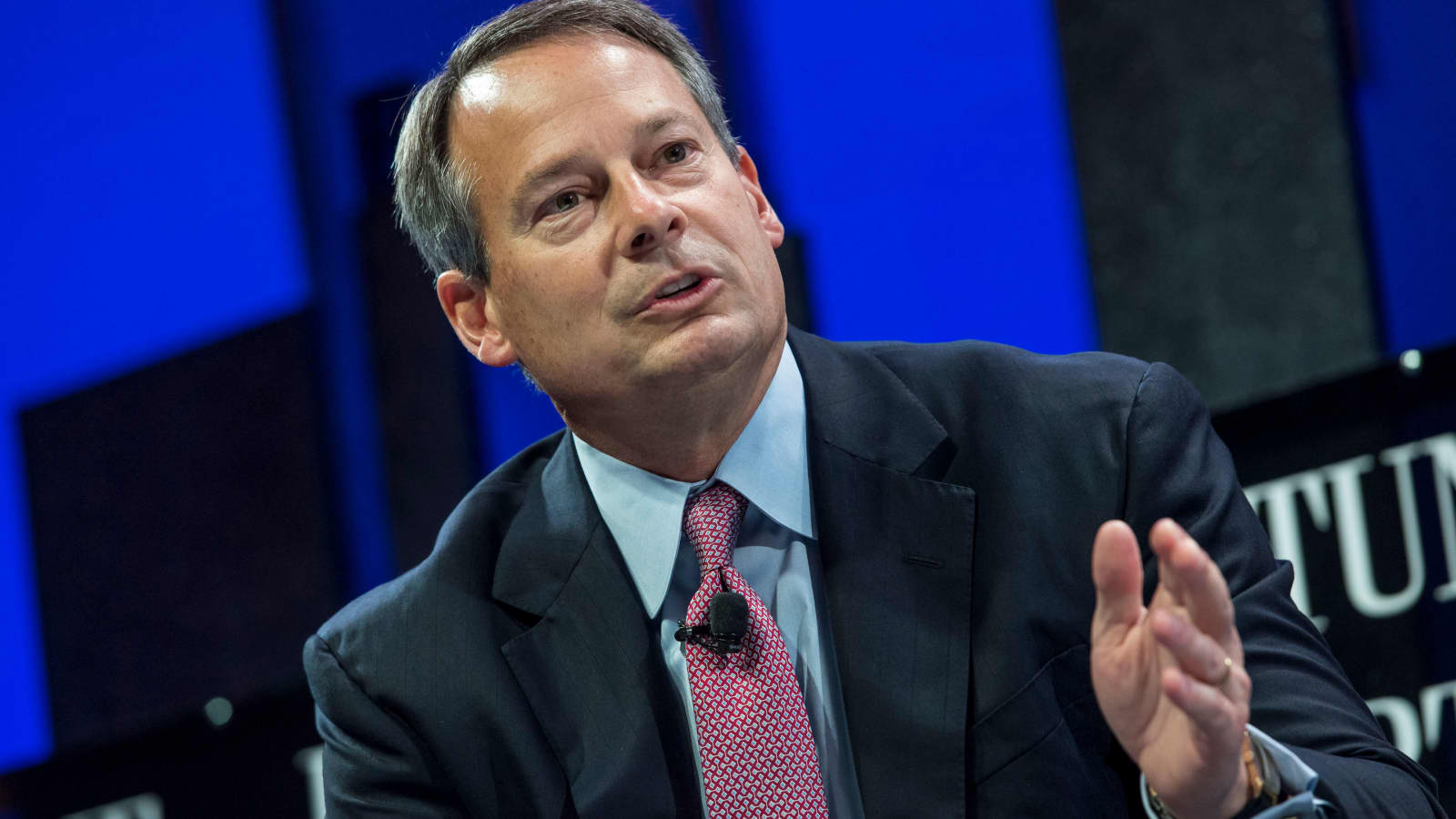Executives Sell Millions in Stock at United Airlines, Charles Schwab, NXP Semiconductors, and More
Executives Sell Millions in Stock at United Airlines, Charles Schwab, NXP Semiconductors, and More
By
Calder Monroe
Last updated:
August 5, 2025
First Published:
August 5, 2025

Walter “Walt” Bettinger, president and CEO of Charles Schwab, speaks during the 2015 Fortune Global Forum in San Francisco on Nov. 3, 2015. | David Paul Morris | Bloomberg | Getty Images
A wave of insider stock sales by executives at United Airlines, Charles Schwab, NXP Semiconductors, and Celsius Holdings has caught the attention of market watchers. The sales—disclosed in filings with the U.S. Securities and Exchange Commission (SEC)—represent some of the largest individual liquidations seen over the past week.
The activity, tracked by VerityData and cross-referenced with SEC disclosures, focuses on non-automatic transactions—excluding those done under pre-arranged trading plans (Rule 10b5-1). For investors, discretionary insider sales can sometimes act as early indicators of valuation sentiment, although motivations can vary widely, from tax planning to portfolio diversification.
Here’s a detailed breakdown of last week’s notable insider sales:
1. Celsius Holdings (CELH)
- Seller: Dean DeSantis (10% owner)
- Shares Sold: 200,000
- Average Price: $47.50
- Total Value: $9.5 million
Celsius Holdings has been on a rebound in 2025, with shares surging over 71% year-to-date and climbing 31% in the last three months. This contrasts sharply with a 50% decline in 2024. DeSantis’ sizable sale comes as momentum investors jump back into the stock amid rising demand for functional beverages and strong retail partnerships.
2. Charles Schwab (SCHW)
- Seller: Walter Bettinger (Co-Chairman and former CEO)
- Shares Sold: 173,900
- Average Price: $98.84
- Total Value: $17.19 million
Schwab stock has rallied 31% YTD, with a 16% gain in the past quarter, following a broad financial sector recovery and stabilizing interest rate outlook. Bettinger’s sale is among the largest insider transactions in recent weeks. While not unusual for long-tenured executives, such moves can influence investor perception during periods of elevated market valuations.
3. NXP Semiconductors (NXPI)
- Seller: William Betz (Chief Financial Officer)
- Shares Sold: 6,800
- Average Price: $227.34
- Total Value: $1.54 million
- Holding Reduction: 82%
Despite a 12.7% rally over the past three months, NXP shares remain down 9.5% YTD. Betz’s significant reduction in ownership may raise eyebrows, especially as the semiconductor industry navigates uneven demand, U.S.-China trade tensions, and inventory corrections.
4. SkyWest (SKYW)
- Seller: Robert J. Simmons (Chief Financial Officer)
- Shares Sold: 17,200
- Average Price: $117.46
- Total Value: $2.02 million
- Holding Reduction: 13%
SkyWest’s stock has advanced 16.5% in the past three months and 9% YTD, benefiting from regional airline demand and cost discipline. Verity reports Simmons is among several insiders at the company who have sold a combined $6 million worth of shares in the past month.
5. United Airlines (UAL)
- Seller: Michael D. Leskinen (Chief Financial Officer)
- Shares Sold: 23,000
- Average Price: $91.43
- Total Value: $2.1 million
- Holding Reduction: 55%
Leskinen is part of a broader trend at United, where insiders have sold approximately $6.2 million in stock over the last 30 days. Despite a 16% gain in the past quarter, UAL shares remain down over 11% YTD—highlighting volatility in the airline sector amid fuel price fluctuations and economic uncertainty.
6. Wingstop (WING)
- Seller: Michael Skipworth (Chief Executive Officer)
- Shares Sold: 4,500
- Average Price: $370.34
- Total Value: $1.67 million
- Holding Reduction: 10%
Wingstop has delivered a strong performance in 2025, with shares rising 31% over the past three months and nearly 25% YTD, driven by strong same-store sales growth and expansion into new markets. Skipworth’s sale comes during a period of elevated valuation multiples in the restaurant sector.
Why Insider Sales Matter
While executive sales don't necessarily signal problems, investors often view them as a window into insider sentiment. A sudden uptick in discretionary selling—especially when combined with falling ownership stakes—can indicate that insiders believe current share prices are at or near peak valuations.
However, sales can also be routine, tax-motivated, or tied to estate planning and should be interpreted within the broader market and company context.
According to Harvard Law’s Corporate Governance Forum, insider selling alone should not be treated as a signal to buy or sell, but instead as one of many indicators of potential valuation shifts, particularly when aggregated over time or across leadership teams.
Last week’s insider activity highlights a mix of profit-taking, portfolio rebalancing, and possibly some caution amid recent stock rallies. Investors would be wise to monitor upcoming SEC filings for further trends—especially in sectors showing recent volatility or rapid appreciation.
Popular articles
Subscribe to unlock premium content
Global Cultures and the Hidden Drivers of Productivity and Happiness

The Future of Personalized Medicine

Digital Nomads and the New Global Economy

Global Cultures and the Hidden Drivers of Productivity and Happiness

The Future of Personalized Medicine

Global Cultures and the Hidden Drivers of Productivity and Happiness









